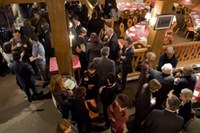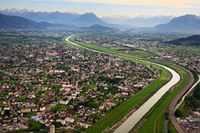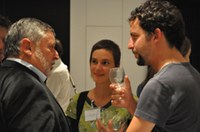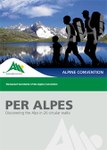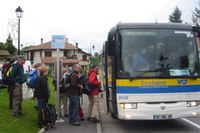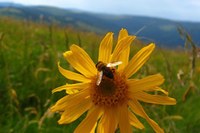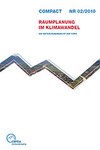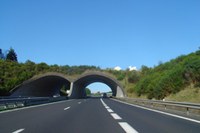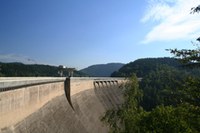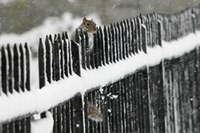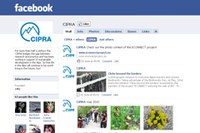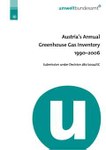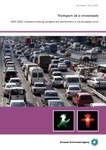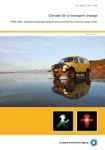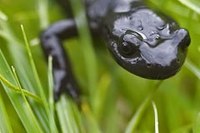Articles
And yet it moves!
Evian/F, March 2009. A huge, windowless room with cold artificial lighting. The only link to nature inside the conference centre is a spectacular bouquet of flowers picked, it would seem, from beyond the Alps. Seated at long tables are the Environment Ministers and State Secretaries of all the Alpine states. Read More…
Sustainable Rhine Valley without bounds: Network Binding Foundation Schaan/FL
The Alpine Rhine Valley is eager to become a pilot region for climate protection. And CIPRA is to assist along the way. An initial assessment of the efforts made is to be drawn up in November 2010. Read More…
Time to shelve the growth model
Yearly Symposium 2009 Gamprin/FL “Growth come hell or high water?”. Andreas Götz, Director OF CIPRA International, on declining growth and its repercussions for the Alps. Read More…
CIPRA prepares a seed bed for new ideas in the Alpine region
CIPRA addressed a broad range of issues at its Yearly Symposium entitled “Growth come hell or high water? The Alps in search of happiness” in Gamprin/FL in September. A look at the global cycles and modes of action provided the framework for the topic. CIPRA also looked at the close ties with the Alps, where those global cycles have an impact, and promoted dialogue at various levels. The Symposium was very favourably received by more than 200 participants from all the Alpine countries. Read More…
Leisure: car-free mobility
Leisure activities that do not involve the use of cars are now "in", as the increasing number of information packs clearly shows. The Alpine Club South Tyrol (AVS) for instance recently published five new brochures, each featuring 15 to 20 hiking routes whose starting and finishing points can all be reached by public transport. In the series Hiking Without Cars the Alpine Club has compiled a total of some 300 hiking tips for the whole of South Tyrol. As the AVS remarks in a press release, "It should be a priority for tourist regions to adopt measures that promote the use of public transport for travel both to and from destinations as well as for activities at the holiday destination itself". Read More…
The "brain drain": an opportunity for the Alps?
Highly qualified people are also leaving alpine regions to move to other regions or countries. But according to a study by the Arbeitsgemeinschaft Alpenländer (ARGE ALPE) Working Group the Alps can put this brain drain to a positive use. Indeed these brilliant minds are also multipliers and image carriers for their homeland around the globe, a fact that should be capitalised on. Read More…
International projects on the impact of climate change in mountain regions
The results of the CIRCLE MOUNTAIN Call are now available. The financing of four translational projects has been approved. The projects are to run for a period of two years and have a volume of approximatively EUR 300'000 each. The four funded projects are ARNICA, EURAS-CLIMPACT, ChangingRISKS and CAMELEON. Read More…
Dear colleagues,
One of the main challenges in the process of implementing the Alpine ecological network is involving all the relevant stakeholders. The Ecological Continuum Initiative supports this goal in different ways. On the one hand with printed information material (fact sheets and the brochure), on the other hand by organizing meetings that offer a chance for personal interactions and exchange among stakeholders. Such a workshop on stakeholder integration took place in Dobbiaco/I this April. Read More…
News from TransEcoNet - transnational ecological networks in Central Europe
Similar as ECONNECT, the Platform Ecological Network and the Ecological Continuum Initiative in the Alps, in Central Europe the TransEcoNet project strives for a better connection of protected and less or unprotected landscapes across national borders. One major goal of the project is to reveal local people's perception and relation to their surrounding landscape in form of a survey of oral history. This is being carried out in the form of interviews in selected project regions. Read More…
Linking-up the German roads for animals and for a better traffic safety
The German Government is developing a National Connectivity Programme which foresees to build wild animal crossings at the most important sites of migrating corridors. This year the first systematic research on ecological corridors in Germany has been finished, representing an important scientific groundwork for the implementation of the Programme. Read More…
5th meeting of the Ecological Network Platform
The 5th official meeting of the Ecological Network Platform of the Alpine Convention was held in Dobbiaco/Toblach (I) on 21 April 2010. The main topic at the meeting was progress made to date in nominating a number of pioneering Alpine regions as Pilot Regions of the Alpine Convention. It is hoped that the first regions will receive official recognition at the next Alpine Conference to be held in March 2011. Read More…
Less barriers, more nature!
Every day we build new obstacles on the migrating routes for animals and we prevent plants to spread freely. In most of the cases we are not even aware of this problem. How would it feel and look like, if our living spaces would suddenly get fragmented by obstacles we cannot easily overcome? Read More…
Think tank workshop Dobbiaco/Toblach: Elaborating recommendations for stakeholder integration
Local connectivity projects can only be implemented if stakeholders are integrated into these activities. Potential difficulties and supportive tools were in the centre of an exchange of experiences between representatives of the ECONNECT pilot areas and other stakeholders carrying out connectivity activities. The discussions were facilitated by the Ecological Continuum Initiative in the frame of a workshop. Read More…
ECONNECT photo contest: clicks beyond borders
The partners in the Econnect project invite amateurs and professional photographers to make a pictorial record of ecosystem fragmentation in the Alps. The photo contest "Clicks beyond the borders" aims to visualize the importance of ecological links in the Alps in powerful images. Read More…
CIPRA goes facebook
CIPRA has now joined the popular platform facebook with a profile of its own. At www.facebook.com/CIPRA.org facebook users can network with our organization and will be informed about novelties, events and actions. Videos and photos provide additional interest and visualize our motto "Life in the Alps". Read More…
Swiss research into sustainable water use
Melting glaciers create new lakes in the Alps. This creates new tourism potential and new risks, such as floods and landslides, for the inhabitants of the valleys. Where and when are such lakes created? Who owns them and who is responsible for them? Read More…
What do the Julian Alps/Sl and the mountain La Salève/F have in common?
Both are examples of protected areas in the alpine bio-geographical region and are presented in the new publication of the European Commission "Natura 2000 - Protection of Biodiversity in Europe". A double page spread shows readers which animal and plant species are particularly in need of protection, how the areas are protected and what their condition in terms of preservation is. Read More…
